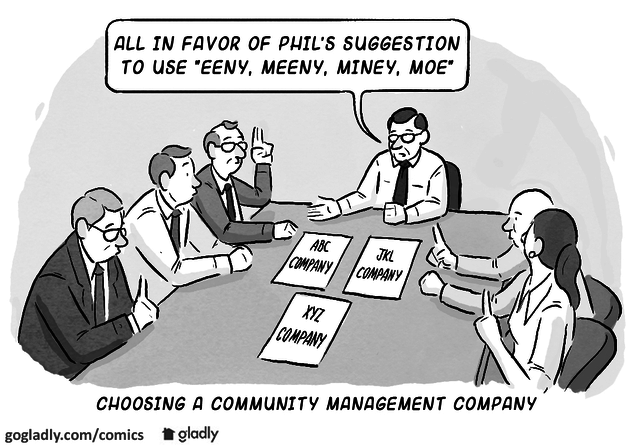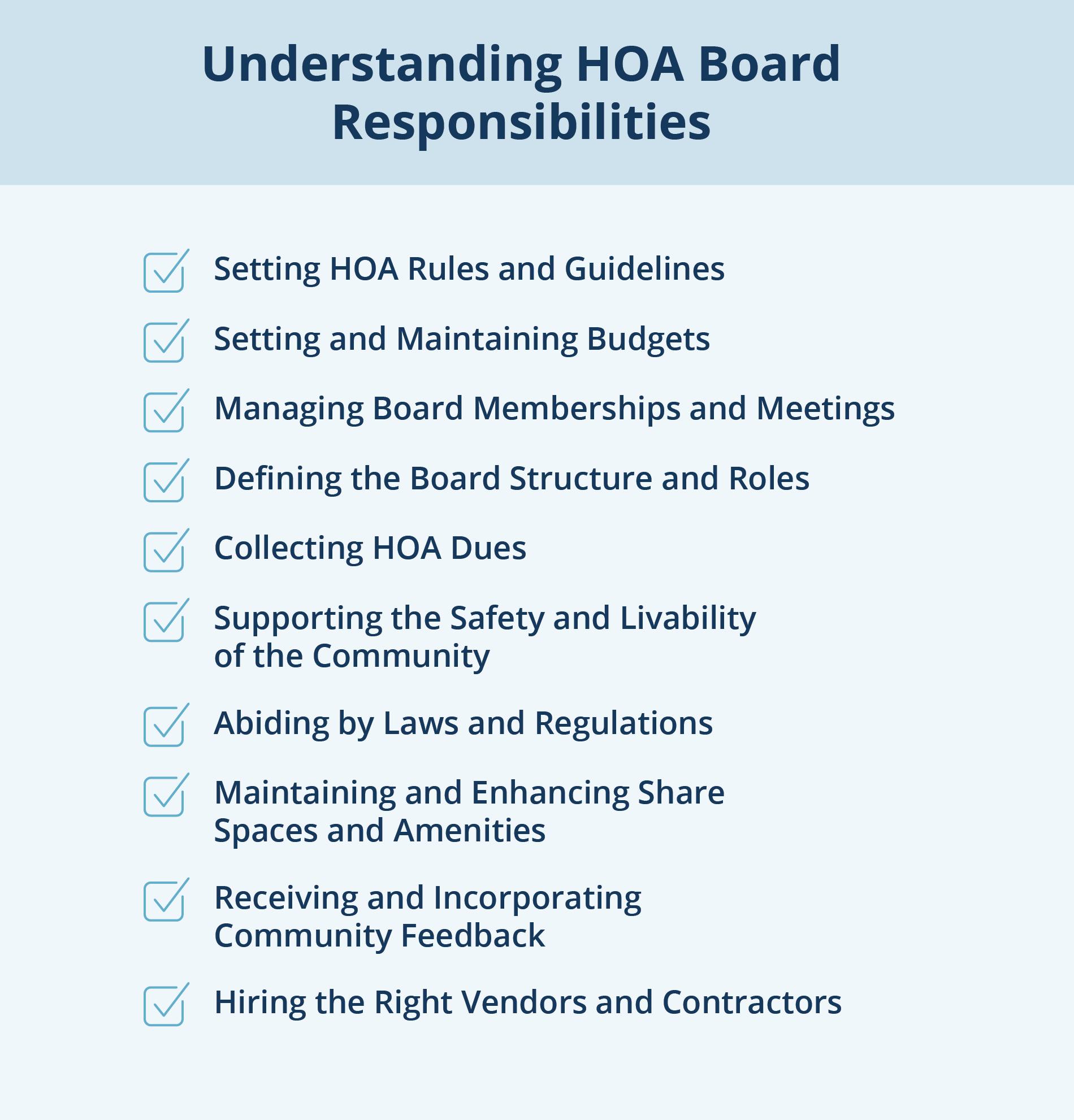HOA Management San Antonio Excellence: Providing Tailored Solutions for Your Community
HOA Management San Antonio Excellence: Providing Tailored Solutions for Your Community
Blog Article
From Financials to Maintenance: Grasping the Art of HOA Monitoring for Neighborhood Associations
Taking care of a neighborhood association requires a fragile equilibrium in between financial obligations, reliable interaction, and reliable upkeep procedures. By delving into these vital areas, we intend to supply useful insights and strategies for mastering the art of HOA administration, leaving you furnished with the expertise and devices needed to browse the obstacles that may occur within your community organization.
Comprehending Financial Obligations
What are the crucial monetary responsibilities that community organizations require to comprehend and handle properly? Area organizations play a crucial role in managing the finances of their communities. hoa management san antonio. To guarantee the monetary health of the association, a number of essential responsibilities must be recognized and handled successfully
Primarily, area associations must develop and maintain an extensive budget. This includes precisely approximating costs and profits sources, such as regular monthly charges, unique assessments, and rental earnings. A well-planned budget plan permits organizations to allot funds for needed expenditures, such as upkeep and fixings, insurance premiums, and reserve funds for future capital projects.
Another essential financial responsibility is the collection of dues and assessments. Neighborhood associations should make sure efficient and timely collection of these fees to cover functional expenditures and keep the monetary stability of the association. This includes implementing a clear and clear repayment policy, dealing with delinquencies promptly, and enforcing any kind of essential lawful actions.
Additionally, area organizations ought to maintain exact financial records and prepare normal monetary statements. These declarations supply a clear photo of the association's economic health and wellness, including revenue, costs, and reserves. Routine financial coverage permits board members and home owners to track the organization's financial performance and make informed decisions concerning budgeting and investing.
Lastly, community organizations must follow all applicable economic regulations and tax requirements. This includes declaring tax obligation returns, keeping correct documentation, and adhering to any legal responsibilities associated with monetary monitoring.
Effective Interaction and Collaboration
Efficient communication and collaboration are important for effective HOA management and fostering a cohesive neighborhood. Area organizations rely upon efficient communication to disseminate crucial details, address problems, and guarantee transparency. A clear and constant line of interaction between the HOA board, homeowners, and home administration is crucial for a well-functioning community.
One means to advertise efficient interaction is via regular newsletters or emails that provide updates on neighborhood occasions, tasks, and essential statements. This allows citizens to remain informed and engaged in the neighborhood. Furthermore, establishing open lines of communication through community online forums or city center meetings can supply a platform for locals to voice their viewpoints, ask concerns, and add to decision-making processes.
Cooperation is similarly essential in HOA administration. Motivating partnership amongst board residents, boards, and members fosters a feeling of ownership and shared responsibility. By entailing locals in the decision-making procedure and proactively seeking their input, the neighborhood association can create a more comprehensive and harmonious setting.
To promote effective partnership, HOA administration should develop clear objectives and goals, delegate responsibilities, and encourage teamwork. Regular conferences, both casual and formal, offer an opportunity for stakeholders to go over concepts, address issues, and work towards typical goals. By fostering a collaborative setting, community organizations can harness the diverse abilities, expertise, and viewpoints of their homeowners to drive favorable change and improve area living.
Enhancing Maintenance Workflow
Streamlining upkeep procedures is essential for reliable and economical HOA management. By applying reliable techniques, area associations can make certain that maintenance tasks are carried out efficiently and in a prompt way, decreasing disruptions and taking full advantage of resident contentment.

Additionally, using modern technology can greatly improve upkeep procedures. Executing a digital upkeep management system (CMMS) enables organizations to track job orders, timetable preventive maintenance, and maintain an arranged document of upkeep activities. This not only enhances efficiency but likewise supplies a transparent and responsible system for both residents and management.
In addition, contracting out certain upkeep tasks can likewise improve procedures. By employing specialized specialists for tasks such as pool upkeep or landscaping, associations can from this source guarantee that these jobs are managed by specialists with the necessary competence, maximizing inner sources to concentrate on various other facets of HOA monitoring.
Focusing On Policies and Laws
To make sure effective and orderly area living, prioritizing and enforcing laws and regulations is crucial for reliable HOA administration. hoa management san antonio. Neighborhood associations rely upon a set of standards to safeguard and maintain an unified environment residential or commercial property values. By plainly defining and focusing on regulations and regulations, HOA administration can guarantee that locals recognize their obligations and expectations
Among the initial steps in focusing on regulations and regulations is to determine those that are essential for the area's well-being. This may include conducting a comprehensive testimonial of the existing guidelines and laws and identifying any gaps or areas that require improvement. It is vital to entail community members in this process to guarantee their buy-in and to attend to any type of problems or tips they might have.
As soon as the most crucial regulations and policies have actually been recognized, HOA monitoring must make sure that they are properly communicated to citizens. This can be done with different methods, such as newsletters, emails, area conferences, and posting notifications alike areas. Regular and clear interaction is vital to guarantee that locals know the regulations and regulations and understand the consequences of non-compliance.
Enforcement of laws and regulations is just as crucial in maintaining a well-functioning neighborhood. HOA administration need to develop a consistent and reasonable enforcement procedure, which might consist of cautions, fines, and other appropriate procedures. hoa management san antonio. It is essential to strike an equilibrium in between implementing the regulations and policies and preserving favorable partnerships with citizens
Navigating Legal and Compliance Issues
Browsing lawful and conformity problems is crucial for HOA management to make certain adherence to laws and laws. Area associations need to run within the bounds of the legislation to keep the count on and self-confidence of home owners and stakeholders. Failing to follow lawful requirements can result in legal conflicts, fines, and damages to the organization's credibility.
To browse these problems efficiently, HOA management must stay updated on government, state, and regional legislations that regulate community organizations. This includes recognizing legislation pertaining to reasonable housing, residential or commercial property, taxes, and employment monitoring. Conformity with these legislations entails implementing plans and treatments that safeguard the legal rights of homeowners and make sure openness in financial and operational matters.
Along with lawful commitments, HOA management should likewise abide by the association's governing papers, such as the laws, constraints, covenants, and conditions (CC&R s) These files detail the policies and guidelines that control the community and may include provisions relating to residential property upkeep, building standards, and conflict resolution procedures.

Final Thought
To conclude, grasping the art of HOA administration for neighborhood organizations requires a thorough understanding of monetary obligations, efficient interaction and partnership, simplifying upkeep procedures, focusing on laws and regulations, and browsing legal and compliance issues. By successfully implementing these strategies, community organizations can make sure the smooth moved here functioning and overall well-being of their areas.
By delving into these key locations, we intend to offer important insights and techniques for mastering the art of HOA monitoring, leaving you outfitted with the understanding and tools required to browse the challenges that might develop within your community association.
Area associations play an important duty in handling the finances of their neighborhoods. Community organizations must make sure timely and effective collection of these costs to cover operational expenditures and maintain the monetary security of the association. By cultivating a collective setting, community organizations can harness the varied skills, knowledge, and viewpoints of their locals to drive favorable change and improve area living.
To navigate these issues properly, HOA management ought to stay upgraded on government, state, and regional legislations that regulate area organizations.
Report this page